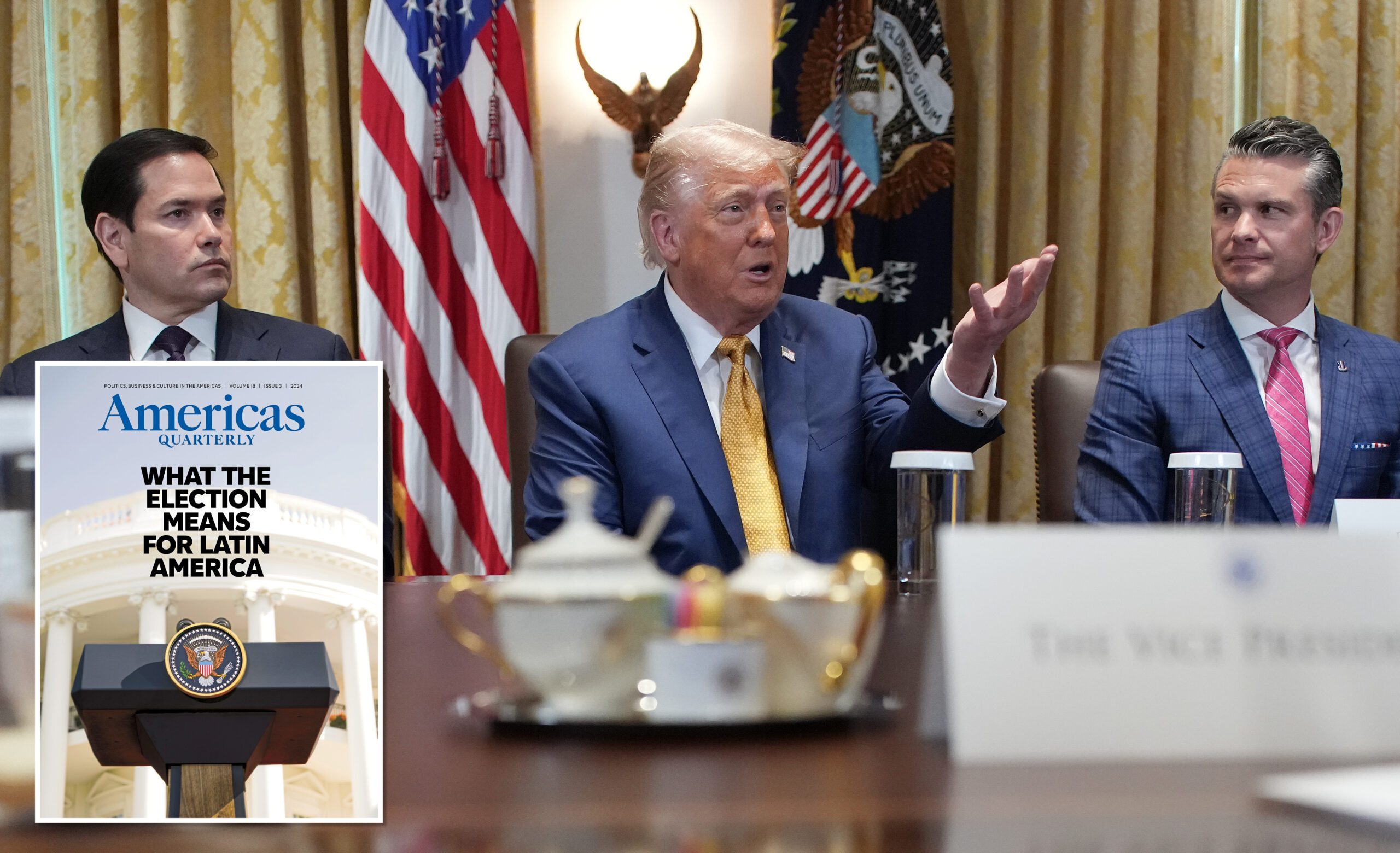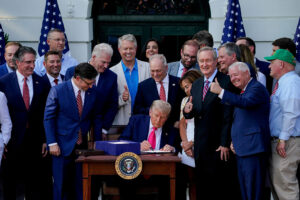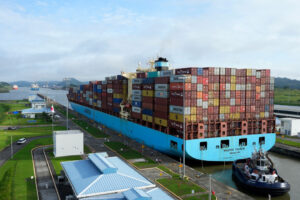This article is adapted from AQ’s special report on COP30

SANTIAGO—In just a few months, the Trump administration has significantly reshaped U.S.-Latin American relations, introducing uncertainty and turbulence into a traditionally complex yet cooperative dynamic. Trump’s “America First” rhetoric, along with substantial policy shifts, have created anxiety throughout the region, and his blunt characterization of Latin American countries primarily as sources of irregular migration, crime, and economic burdens has deepened mistrust and heightened tensions.
His declaration that “Latin American countries need us much more than we need them” exemplifies a transactional approach that misjudges the idiosyncratic dynamics and overlooks growing regional autonomy and global multipolarity.
Since AQ published an issue last year highlighting the significance of the U.S. election for Latin America and the Caribbean, numerous events and decisions have underscored the inextricable connection between the White House and the region. The rapid issuance of executive orders, the delays in implementing some directives, and the specific “deals” with several countries in the region illustrate the unpredictability that many analysts anticipated. Moreover, the recent announcement of a 50% tariff on Brazilian imports—justified by claims that Brazil’s prosecution of former President Jair Bolsonaro is politically motivated—further heightens tensions.
In January, shortly after his inauguration, I published an article outlining 10 keys to understanding Trump’s second term. Now, more than six months into his administration, 10 lessons have become clear and provide critical context:
- Diplomacy Matters: Transactional and confrontational rhetoric weakens long-term partnerships.
- Aid Reductions Backfire: Cutting USAID programs exacerbates instability and migration.
- Trade Threats Alienate Allies: Protectionist measures undermine U.S. influence, pushing partners toward competitors.
- Military Responses Have Limits: Militarized approaches to drug trafficking risk escalating regional violence.
- Ignoring Climate Change Hurts Every.one: Withdrawal from environmental commitments exacerbates regional vulnerabilities.
- Migration Requires Comprehensive Solutions: Structural causes cannot be addressed through punitive border policies alone.
- Regional Unity Is Crucial: Favoring bilateral deals over multilateral cooperation undermines collective regional stability.
- Democracy Needs Support: Failure to address democratic erosion allows authoritarianism and populism to flourish.
- China’s Influence Expands Unchecked: Without a robust U.S. strategy, China’s economic foothold in Latin America grows.
- Strategic Clarity is Essential: Ambiguity in policy creates uncertainty, weakening strategic partnerships and regional trust.
Throughout Trump’s second term, the lack of clarity regarding U.S. partnerships has become increasingly pronounced. The administration’s unpredictable posture toward key nations—especially Mexico and Colombia—leaves these traditionally close allies uncertain of their standing. Ambiguity and volatility hinder sustained collaboration, complicating long-term strategic planning. Trump’s threats of tariffs against Mexico have particularly strained relations, jeopardizing critical cooperation on migration and security.
The significant reduction of USAID funding remains a major concern. By drastically cutting U.S. aid, Trump undermines initiatives aimed at addressing poverty, crime, public health crises, and governance challenges throughout Latin America. These programs have historically contributed to mitigating the root causes of instability and migration. With reduced U.S. support, regional conditions are worsening, possibly intensifying migration flows and security threats—precisely the outcomes Trump aims to prevent.
Undermining U.S. influence
On trade, Trump continues to prioritize protectionist measures. His withdrawal from multilateral trade frameworks, such as the Trans-Pacific Partnership (TPP), and threats against USMCA have destabilized regional economies that heavily rely on U.S. markets. The aggressive tariff negotiations and threats have prompted Latin American nations to strengthen economic ties with alternative powers like China and the EU, inadvertently undermining long-term U.S. influence in the hemisphere.
Security cooperation has similarly suffered. Trump’s designation of Mexican cartels as foreign terrorist organizations (FTOs), along with aggressive rhetoric about combating drugs through military means, raises concerns about increased violence and instability instead of addressing the underlying issues. Furthermore, Trump has initiated large-scale deportations of Latin American migrants, often through measures that challenge or disregard legal norms. These deportations have involved forcibly returning migrants either directly to their home countries or to other countries within the region, frequently without adequately assessing their claims for asylum or protection under international law. Such actions have raised significant concerns regarding human rights violations, due process, and the broader implications for regional stability and cooperation.
Immigration enforcement agents carried out raids in Los Angeles during the first week of June, using excessive force, targeting specific population groups, and demonstrating authoritarian tendencies. These actions both respond to and reinforce a public narrative centered on the perception of Latin American migrants as a threat. None of this will yield positive long-term outcomes.
Democrats have intensified their critiques, arguing that Trump’s approach risks decades of diplomatic progress and regional stability. They emphasize the importance of collaborative over coercive policies. Yet, Democrats face their own challenges in clearly defining a cohesive alternative policy. While critiques abound, a fully articulated, comprehensive regional strategy remains elusive, complicating their political positioning both domestically and regionally.
Ultimately, Trump’s second-term policies continue to create uncertainty, undermining U.S. leadership in Latin America and worsening regional instability. Without a cooperative, clearly defined approach, long-term hemispheric relationships face the risk of permanent damage.









